The nurse’s murmur was gentle: “Dr. Bui, Ms. Sanchez is still waiting for her Pap test.”
More than an hour earlier, I’d left Ms. Sanchez waiting in an exam room while I rushed to see the rest of the patients on my schedule. And then I’d forgotten about her.
I’d had the inevitable difficult moments in my early career as a family doctor, but this marked a new low. Incidents like this fueled my decision to leave the clinic where I’d spent nearly five years as a physician.
The idealism I’d had as a medical student had eroded—first, during my training as a resident at a multibillion-dollar corporate hospital, and then during my four-and-a-half years as an attending physician, when I learned, among other things, how money can corrupt medicine.
I’d always believed that all people have a right to good-quality health care, regardless of their income, insurance or immigration status. And I believed that those with few resources deserved even more of my attention and healthcare expertise. These were the patients who came to me suffering from nonhealing ulcers because, living in shelters, they couldn’t get nutritious food or manage basic hygiene.
My patients were mothers suffering from PTSD—deeply anxious and depressed, irritable, desperate for sleep, complaining of pain—while Child Protective Services attempted to take away their children. I had patients with diabetes rationing their insulin because insurance companies refused to pay for the amount they needed, who could afford only the Dollar Menu items at McDonald’s and who, even if they’d had access to fresh produce, didn’t have stoves to cook it.
In my view, these patients were failed by a society driven by profits and by corporate hospitals that had overlooked their actual needs.
A future in medicine looked bleak and unrewarding. My “nonprofit” employer paid its CEO more than $15 million while its nurses struck for safe patient-staff ratios. It made me feel sick to know that I was working for an organization with such misplaced priorities.
Understaffing was a severe and chronic problem. Because of this, I’d gotten more and more overextended. I did most Pap smears myself, because nurses weren’t available to assist. At times I got so frazzled that I didn’t even remember which patient I’d just seen.
Which brings me back to Ms. Sanchez. After asking her to get undressed, I’d rushed to my next patient, intending to handle their relatively simple complaint quickly and return in a few minutes. Instead, I proceeded to treat my next few patients while Mrs. Sanchez waited half-naked on the exam table.
When the nurse came to remind me, I felt so ashamed: In striving for efficiency, I’d compromised on caring for the person in front of me. That I’d forgotten her (especially in such a vulnerable state) made me doubt my worth as a doctor and as a human being.
The hospital’s administration seemed interested in their physicians’ ability to generate revenue above all else. When I wanted to get involved in any health initiatives, I would volunteer after work or during my lunch hour (in reality, fifteen minutes) to pursue my “passion projects.”
Looking around at my colleagues, I saw that many felt similarly disillusioned, disappointed and demoralized; they were slowly stepping away from patient care, or considering leaving the field altogether. It was hard to see myself doing this work for another thirty years.
Gradually I too reduced my patient-care hours. Finally I resigned altogether.
When doctors leave medicine, there’s a misperception that they do so purely because they’re required to work too hard. True, many physicians (particularly interns and residents) work extremely hard—but, for me, the real story is more complex.
Doctors’ disillusionment reflects more than overwork; it reflects moral injury—a more accurate term, to my mind, than “burnout.”
Moral injury—the psychological response to violating or betraying your core values—is marked by intense feelings of guilt, shame, anger and self-condemnation. That was what I felt when I tried, but failed, to get a wheelchair for a patient with a leg amputation, because their insurance company refused to pay for it without a mountain of supporting documents that I had neither the time nor the support staff to provide. In my failure, I lost faith in my ability to care for that patient—and, ultimately, I lost hope altogether.
In these circumstances, it’s tempting to protect yourself—to work part-time or pursue a less demanding career, perhaps join a concierge medical practice with low patient volumes. But I believe that the long-term antidote to moral injury should not compromise your core values; the antidote is to create the world that you and your patients want to inhabit.
Thankfully, after months of searching, I found a workplace that supports my medical vision and goals: a federally qualified health center (FQHC) located in Manhattan’s Chinatown. Here, as a physician educator, I’m working harder and smarter—putting in more hours, but doing work that I believe in, with adequate support and growing success.
The center, employing 600-plus people in six locations throughout Manhattan and Queens, embodies what I thought primary care would be. It is dedicated to its patients and to its staff. Many people stay here for their entire careers; some attendings began here as college students in the clinic’s paid summer internship.
When I started here, I thought, Perhaps the reason for the center’s award-winning patient outcomes is that we’re caring for the Asian population, who culturally respect doctors and will do as they’re told. If that’s part of the story, it’s far from the whole truth.
From the moment a patient enters the building, they’re greeted by a staff member. Often it’s Gordon, a facilities worker who knows which caregivers are present that day, and on which floor. Gordon then presses the elevator button repeatedly, willing the damn thing to come down faster. A small gesture, but it shows that he cares—and he furthers our mission by helping patients and providers get where they need to go. Every morning, when I stop by his desk, he greets me with a smile; every evening, he says good night if I’m able to leave before he does. And every year, he’s Santa at the office Christmas party.
My role here as physician educator has been defined by my interests and passions. I’ve been invited to train medical assistants, nurses, students, residents and new attendings. I’ve spoken to a local PTA about the importance of cardiovascular health. And whenever I participate in a health initiative, my schedule is adjusted as a matter of course.
Crucially, the staffing is ample. Someone is always available to help with Pap smears, and eager to assist and learn. Thanks to a team of dedicated social workers/nurses who compile the needed documents, I’m able to get my patients the wheelchairs they need. Nurses call my patients about their lab results or check in with them after a hospitalization. Care managers and medical assistants complete patients’ forms, so that I don’t have to. In countless ways, I’m reminded that I’m not alone, that I’m actually part of a team—and that we’re in this together.
I feel so lucky to have found a workplace like this. Here I’ve found my way back to joy, purpose and, most importantly, to hope in medicine. Surprisingly, I’m seeing more patients per day than ever before, but in this supportive work environment, it feels manageable.
And no longer do I fear that I’ll forget about a patient.

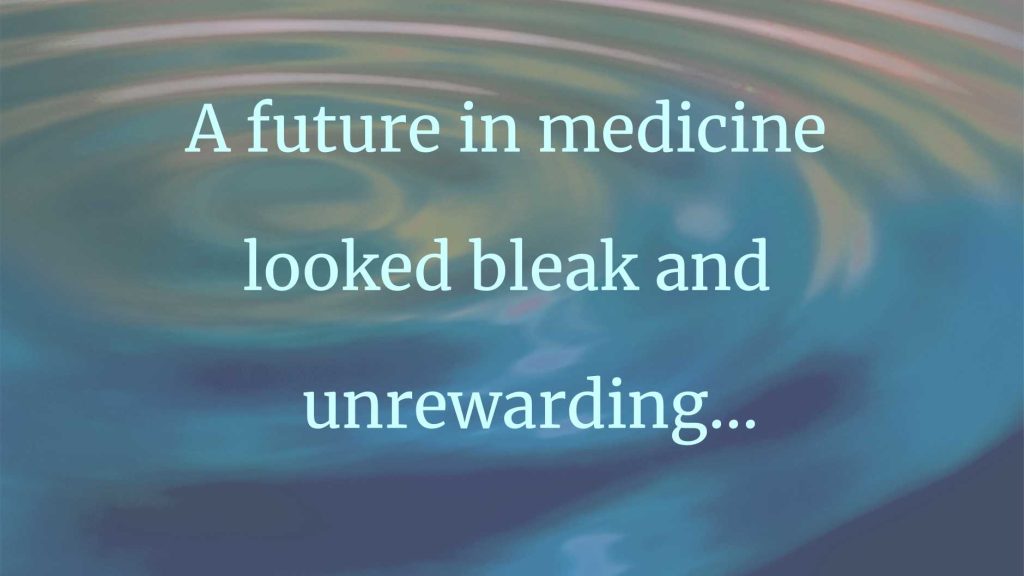

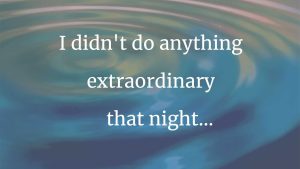
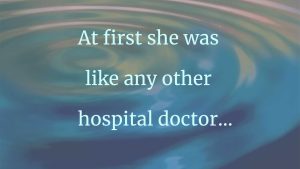
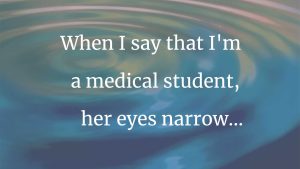

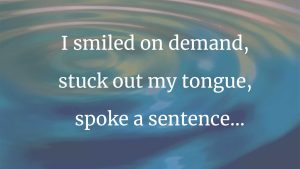
10 thoughts on “Recovering From Moral Injury”
Dr. Bui, thank you for your passionate message. Your message, and the 15 comments following, make me glad I have retired after 4 decades in medicine. I too chose family medicine to provide care. When I started our office call was 1 dollar per visit. We were in a rural setting with a goal of providing health care equal or better than available in large city hospitals. Then, for profit systems entered. I too left our practice to teach, where I had responsibility, but also some control of my schedule. Knowing what I have learned to date, I’m not certain I would enter medicine today. But I loved patient care, and still miss it.
Dr Bui, Moral Injury is so much more descriptive of what I went through than burnout is. Thank you for this. I wish you’d written this in 2017, when I quit medicine altogether after over 3-decades teaching and practicing. When I think of my ‘burnout’, the term is imbued with guilt that I didn’t have more resilience. More strength and joy to you!
WOW! what a well-written passionate essay! it makes me think back to my younger more idealistic days: why can’t all health facilities operate this way? people and their health are so much more important than profit
Thank you, Dr Bui.
It is my understanding that FQHC are all over the country. They are a little known network that has received federal funding in fiduciary vehicles different than traditional insurance. They have had community oriented organizational principles different from the health systems that emerged out of hospital systems which are based on rigid hierarchy and traditional medical training which has been left brain dominant. I really like the concept of Moral Injury. Reading this essay was a comfort for me. I had to walk when I realized the cynicism and anger were becoming part of my personality. Fortunately I didn’t have $250,000 of student debt.
This was so beautifully written, definitely spoke to my heart. You gave me hope that the answer isn’t to quit but to keep up the passion to create what is good and right.
Thanks Dr Bui, for sharing your story.
I’m very sad that this is exceptional.
Why cant all health services be like this? Surely its a tiny minority who might wish for anything else? Why cant much bigger changes happen? What could we do to promote that?
Thankyou again
Dr. Bui, your story is highly relatable. I find it heartening that you have found a setting to care for patients and find your way back to meaning and joy. Thank you for sharing
Thank you for your heartfelt story. One has to wonder, if these clinics can operate with such care, why isn’t that the model everywhere? Yes, I know, money, but where there is a will, there is often a way. I’m glad you found your way.
Dr. Bui, I read your piece just now; your comments echo those I’ve been hearing with alarming frequency since I retired a few years ago. I grieve for younger colleagues who are often now experiencing very different working conditions compared to my own, and I was afraid your essay would be chronicling the loss and disappointment of yet another overwhelmed physician. To my great delight, that was not the case; you have found a clinical home which mirrors your values as a clinician, and it is evident that you’ve recaptured the joy of patient care in this new position. Thank you for sharing such a hopeful story, and best wishes for continued success.